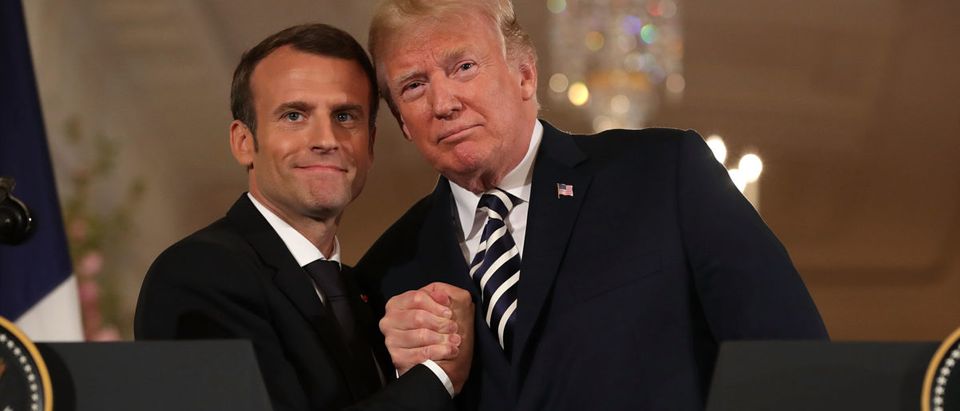We tend to think that the French and American revolutions shared common ground, and a similar quest for democracy, freedom and pursuit of happiness.
However, this month’s comment from French President Emmanuel Macron that nationalism is a “betrayal of patriotism” came as an unfortunate reminder that France is not about freedom of opinion so much as sanctuary for crazy democrats. When Macron gives his own definition of nationalism, he willingly displays an attitude toward the United States. He should probably ask a school teacher about the French definition of the word. Let’s read the “Larousse” dictionary and translate it: “Nationalism: Political movement of individuals who are aware of forming a national community because of the links (language, culture) that unite them and who may want to build a sovereign state.”
How does Macron define this as a betrayal of patriotism?
Let’s remember the European Union is a supranational organization. Participants belong to each other. Because the parliament of each country must follow supranational regulations, being a patriot is awkward. Consequently, European leaders are scared that their people might be inspired by Donald Trump — or the British Brexit. The EU’s plan is regionalism, so anyone willing to prioritize France is labeled “far-right.”
Today’s France is not the France of Tocqueville or Lafayette. That ancient country is buried under layers of aggressive leftist ambition. We called it terror during the French Revolution, when leftists would use intimidation, violence, or worse, the guillotine on you.
Many progressive ideas were indeed shared by Americans and French philosophers a long time ago. Some European leaders agreed on reforms. In fact, the King of France (Louis the XVIth) was one of them, during the Enlightenment Period. However, while Americans were getting their independence from Britain, the French King was losing his head for helping them (due to war costs). The rest is history; the French Treasury spent too much on mignons and not enough on flour.
The France that supported U.S. independence was not the France of Robespierre. Robespierre was not a Thomas Jefferson or a James Madison; Robespierre was the leader of a government that terrorized its people. The guillotine is something that many French aristocratic and conservative families won’t forget. France was certainly not a good place to be for freedom of opinion or freedom of speech during the French Revolution and the Terror, and it’s still not the case today if you ask Marine Le Pen.
Don’t be surprised by Macron’s declarations; he’s part of the caviar left of France. The caviar left is composed of liberal democrats living in Paris or Brussels. They became wealthy by swimming the French swamp, going to Napoleonian schools and benefitting from taxpayer revenue. They feed themselves with “petit fours” and fake news all day long. They wrote the Paris Climate Change Treaty for marketing purposes — but keep using their own personal jets.
Macron’s job is to comply with France’s supra national government and the expectations of other foreign powers. That’s part of the reason he’s raised taxes on his people.
The European Union often pushes for smaller member states to enter into financial negotiations with the EU, but they can’t always afford it. As a result, Germany and France must fund the entire organization in majority; loans and jobs go to smaller countries such as Poland. EU leadership is petrified by the idea that France and Germany might contribute any less, and by the prospect that loyalty to foreign powers — such as the U.S. — could weaken their commitment to the EU.
The bottom line is that the EU has a strong interest in seeing an American decline, and Macron’s comments shouldn’t come as a surprise. The map is very hostile to President Trump right now; he is the last man standing among many disloyal allies.
Veronique Dorey Collier is the founder of Dorey Communication, a consulting firm that specializes in media projects, global marketing and European affairs. She previously worked on French President Jacques Chirac’s 2002 presidential campaign. She was born in Le Mans, France and studied political science, Norman law, international law and comparative law at the University of Caen in Normandy and La Sorbonne in Paris.
The views and opinions expressed in this commentary are those of the author and do not reflect the official position of The Daily Caller.


